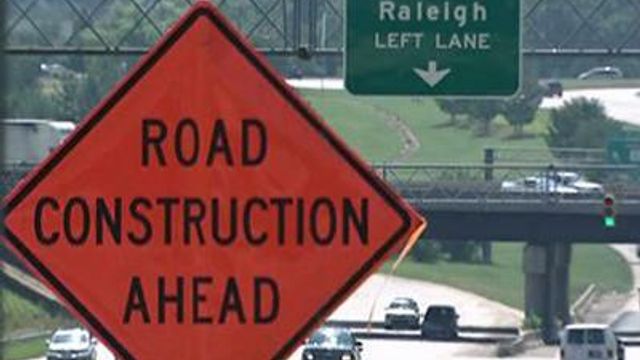DOT seeks 'balanced solution' for Highway 64 proposal
North Carolina Department of Transportation officials said they are seeking a "balanced solution" to expand a stretch of U.S. Highway 64 and address residents' concerns about the project at the same time.
Posted — UpdatedThe DOT held a community meeting at Green Hope High School in Cary on Thursday night to meet with residents. The proposals didn't sit well with many residents who live and work in the area.
"We ran a quick petition drive at one of the local grocery stores, a Kroger up on 64," said resident Russ Cobb, who opposes the plan and is part of a group called Save 64.
"So, we thought right in the heart of where this is going to occur ... let's see how many people are actually aware of it. In seven days, we came up with 2,600 people who had no idea that either the super-street or the expressway was on the books, in terms of being planned."
The 19-mile project would run from the U.S. 64 Business/U.S. 64 Bypass Interchange, east of Pittsboro in Chatham County, and extend east to the U.S. 1/U.S. Highway 64 interchange in Cary in Wake County.
The DOT is proposing a two pronged approach. The short term plan is to turn 64 into a super-street with improved timing of signal lights and restricting left turns onto the highway.
"When you pull up to a signal, you only have to look at one direction of traffic to see if traffic is coming from that way," said DOT official David Wasserman. "It spreads everything out and allows for more traffic to be moving in the general intersection area at once."
If that doesn't do the trick, a more involved plan would be implemented. Major intersections on 64, between Cary and Apex, would be turned into interchanges or bypasses.
Wasserman said he is working with Cobb's group to come to a solution.
"We're working with them. That's one of the reasons we're here today," he said. "We've mt with them several times, and we're continuing to talk with them and trying to come up with a balanced solution."
How the plan works
The two-phase plan calls for first, restricting left turns and putting in U-turns for better traffic flow over the course of five to 10 years. This would transform sections of 64 into what's called a "super-street," utilizing "Michigan left" turns.
The concept was first used in Detroit and essentially eliminates left turns at intersections. Michigan left turns instead call for drivers desiring to make a left turn to first turn right and then drive down to a make a U-turn in the median.
Department of Transportation engineers say the design is safer and avoids more costly expenses associated with widening a road.
The second phase would turn a two-mile stretch from U.S. 64/U.S. 1 in Cary to Laura Duncan Road in Apex into an elevated highway. Interstate traffic would flow on the top road, with local access on a road underneath. It would take an additional 10 to 25 years to complete.
In the long-term, officials hope to create a bicycle and pedestrian trail from west of the Haw River in Pittsboro across Jordan Lake to Apex. This trail would connect to the American Tobacco Trail.
A team of DOT staff and Apex, Cary, Wake County and Chatham County officials developed the plan, but it has no sources of funding. The DOT said a rough estimate would be about $400 million but that the cost would likely change.
While there is no money identified, now is the time for the public to influence the plans. If funding is approved for any of the short-term improvements, detailed designs will be developed and an additional public meeting will be held before any construction begins.
• Credits
Copyright 2024 by Capitol Broadcasting Company. All rights reserved. This material may not be published, broadcast, rewritten or redistributed.






